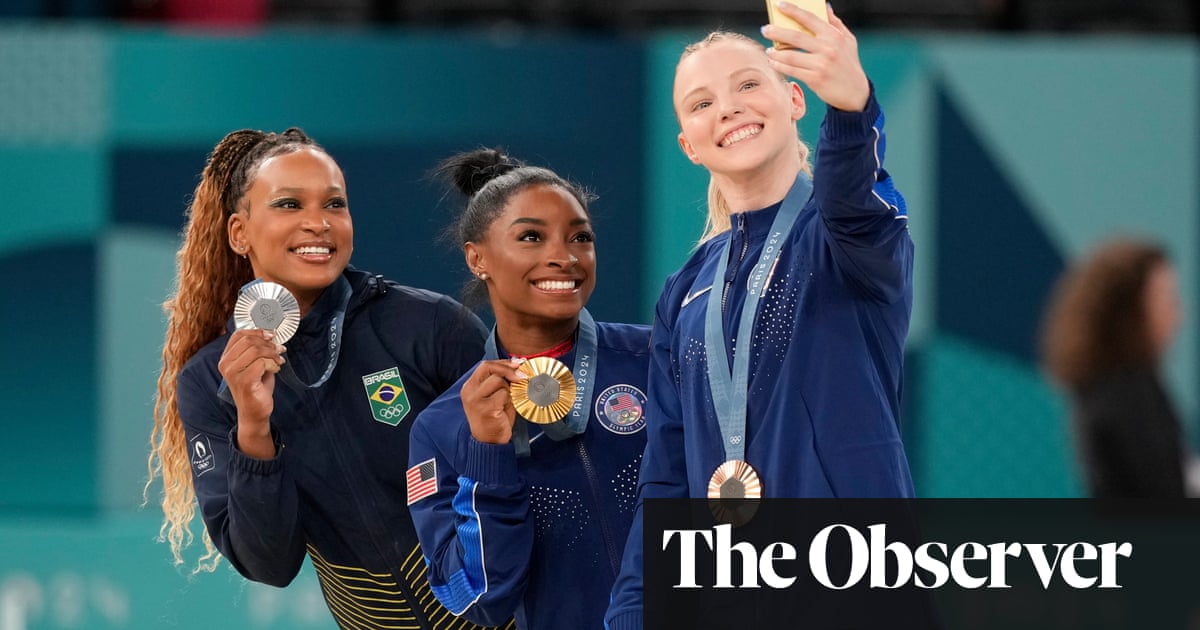At the end of a bruising, difficult week that did not play out as they had hoped, the Great Britain Davis Cup team stepped out in Manchester before a record crowd with just one possible path remaining for them to reach the next stage of the competition: they needed to win all three matches against Canada, the strongest team in the group.
While this may have been a realistic possibility on paper, the reality played out as a painful anticlimax. Great Britain were knocked out of contention at the very first hurdle following an excellent performance from Denis Shapovalov, who dismantled Dan Evans 6-0, 7-5 in the opening encounter.
Canada finished a spotless week with a 2-0 win against Great Britain as a frustrated Jack Draper fell 7-6 (8), 7-5 against Felix Auger-Aliassime in the second rubber. While Canada advanced to the “final eight” knockout stage of the Davis Cup finals in Malaga top of Group D, Argentina took the second spot. Great Britain finished in third place with a 1-2 record after defeats against both Argentina and Canada.
“It’s just disappointing,” Evans said afterwards. “Watching Jack walk out there with no chance of qualifying, it’s difficult and I have to – not live with it, it’s not that important – but I have to deal with that. It was frustrating to not give him a shot, I really thought I could have.”
A crushing 2-1 defeat against Argentina on Friday left the hosts in an uncomfortable position on a final day of play that produced Great Britain’s largest Davis Cup crowd, the AO Arena reporting a sell-out 15,700.
While Great Britain had faltered, the Canadian team, led by two former top-10 players in Shapovalov and Auger-Aliassime, have been in excellent form all week and Shapovalov maintained his form in a supreme exhibition of attacking tennis throughout the opening set. While Evans held onto his serve for much of the second set, Shapovalov played brilliantly in all of the decisive points.
Despite the first match rendering the remaining rubbers meaningless, Draper and Auger-Aliassime battled hard in two tight sets. Draper saved five set points before finally succumbing to the opening set, which he reacted to by completely destroying his racket.
Given his growing fatigue after rushing from New York following his US Open semi-final run last week to be ready in Manchester, Draper’s team in London may have been hoping for a quick, painless resolution to the match. But he fought until the end and was outplayed by a strong Auger-Aliassime, who has bounced back well from a poor straight-sets defeat in the first round of the US Open.
Quick GuideHow do I sign up for sport breaking news alerts?
Show
- Download the Guardian app from the iOS App Store on iPhone or the Google Play store on Android by searching for ‘The Guardian’.
- If you already have the Guardian app, make sure you’re on the most recent version.
- In the Guardian app, tap the Menu button at the bottom right, then go to Settings (the gear icon), then Notifications.
- Turn on sport notifications.
“It was a choice not to be here,” Draper said. “But I put myself out there, put myself in a position to fight for the team, and it wasn’t meant to be the last couple of days. But I’m proud of myself and give myself a lot of credit for putting myself on the lines, for coming up here to try my best for the country, for the team. It’s a shame that it didn’t work out, but that’s sport.”
after newsletter promotion
The British team have now advanced from the Davis Cup group stages only once in its past three years, results that are particularly disappointing as they have been the host nation during this period. This edition was played under particularly challenging circumstances, with Draper facing a difficult turnaround and the absence of the British No 2 Cameron Norrie because of injury.
As he rued a difficult weekend with two defeats, Evans revealed he is considering his place in the British Davis Cup team. During the week, the 34-year-old became Great Britain’s second most prolific Davis Cup player having now competed in 28 ties.
“I need to think about that,” he said. “There’s a good saying, which I wasn’t very good at when I was younger: ‘You’ve got to learn when to leave the party.’ I need to have a think. I’ve obviously thought about it before. I came here being a bit hurt. If I want to, this could quite really be a week off for me if I wanted it to be. And it would be nice, obviously. But I love representing my country.”
Evans also noted that his presence in the future could make Great Britain captain Leon Smith’s future decisions unnecessarily difficult: “I don’t think it’s right to be putting Leon in awkward positions because I played x amount of ties. If I don’t feel capable of playing, I won’t come back.”









